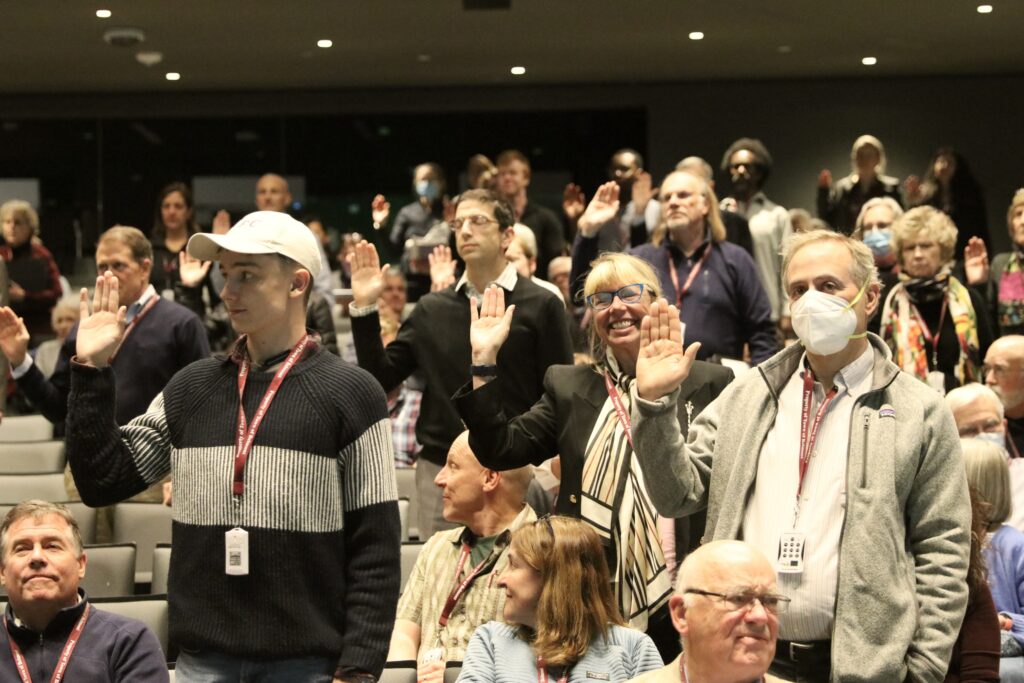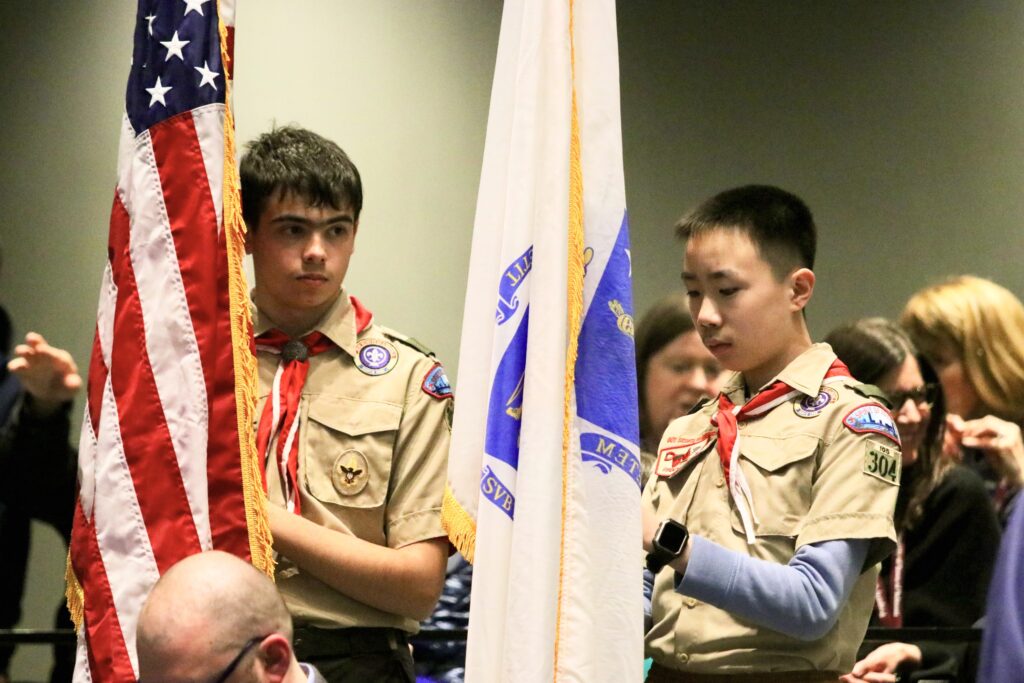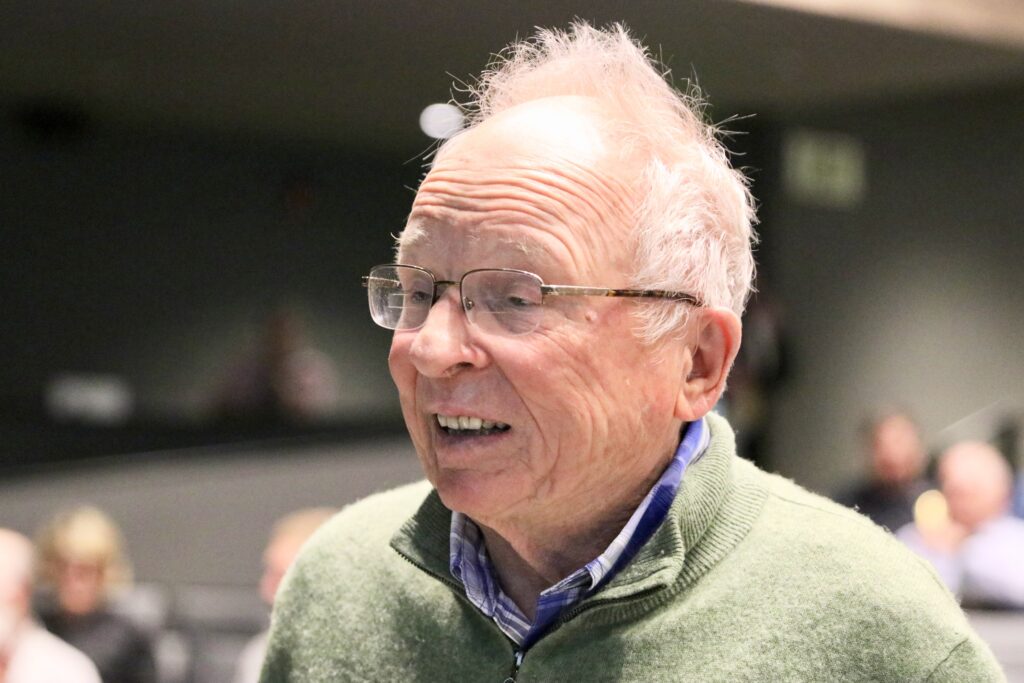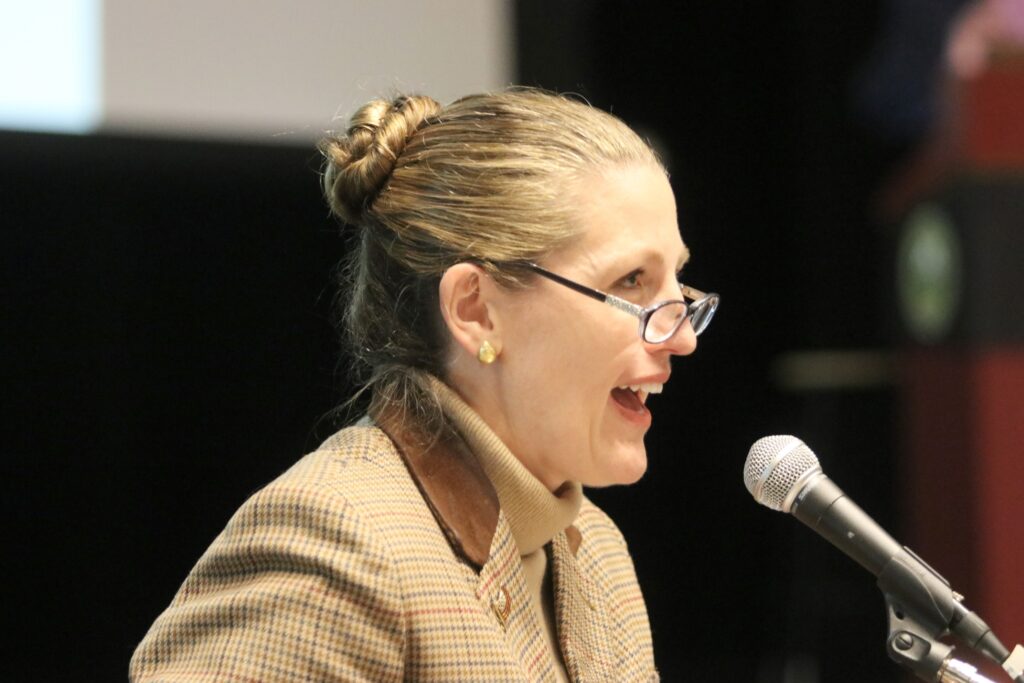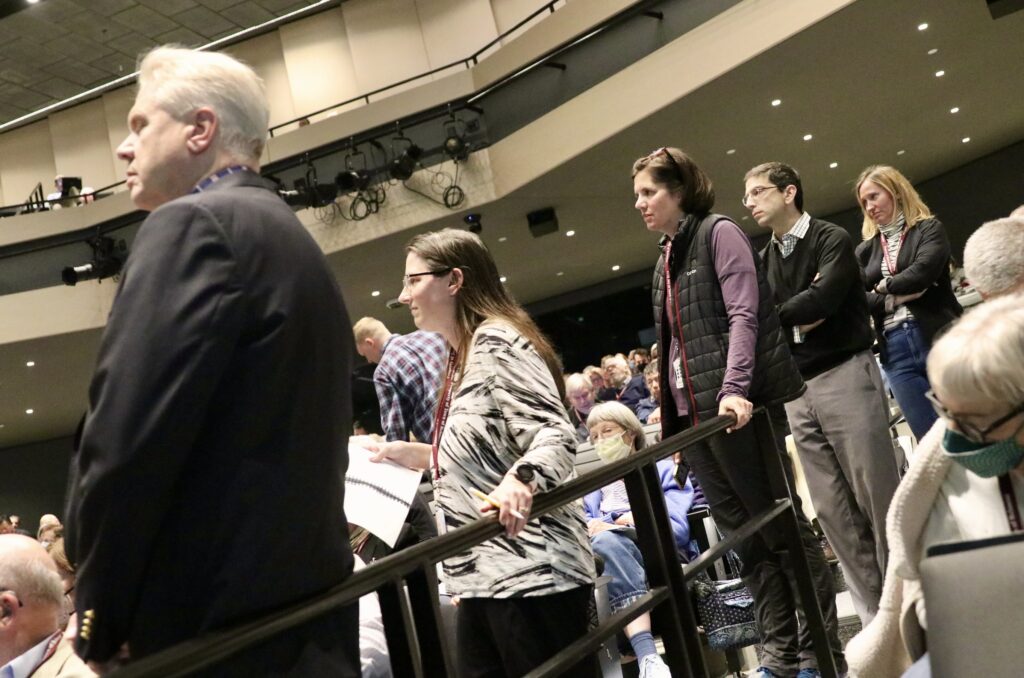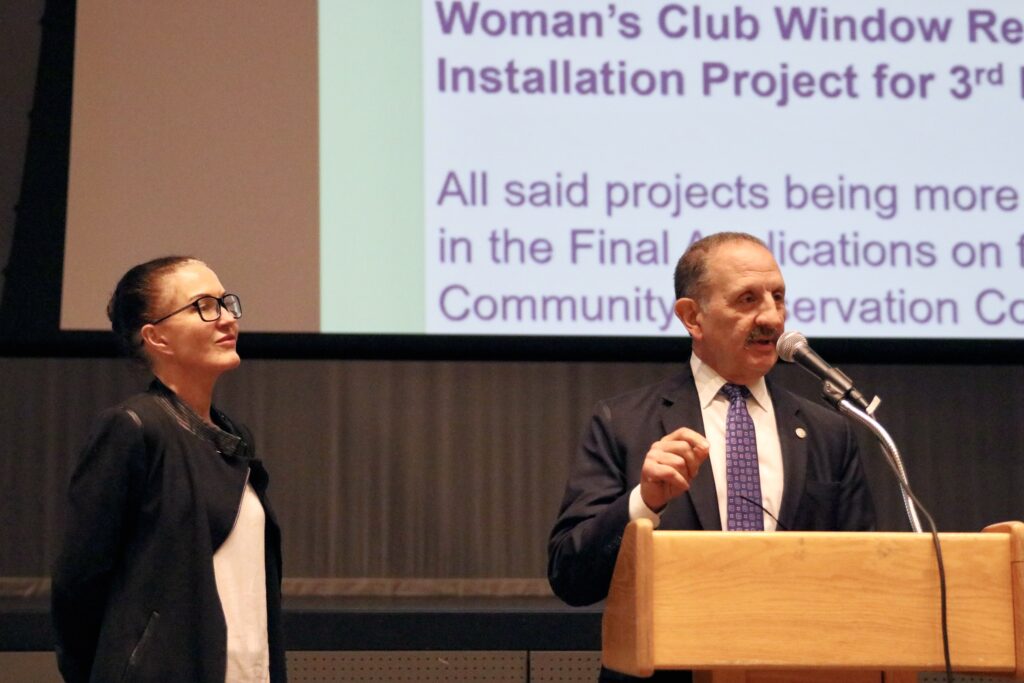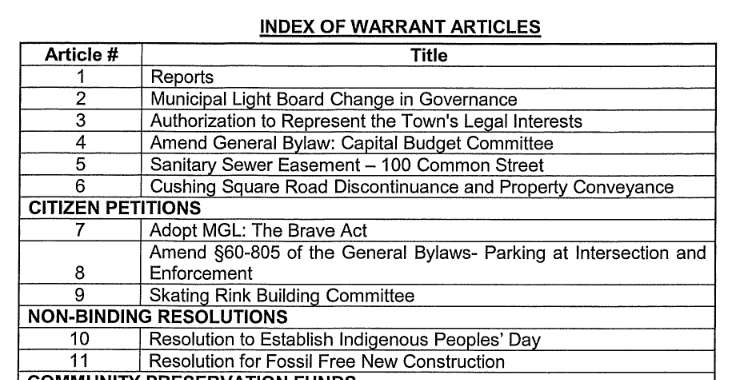Photo: The Belmont League of Women Voters will co-host this virtual briefing
The Belmont League of Women Voters and the town’s Warrant Committee will co-host a virtual Warrant Briefing preceding the first night of the 2024 Town Meeting on Wednesday, April 24, at 7 p.m.
Here is the opportunity for Town Meeting members and residents to ask questions about articles in the non-budget warrant – known as Segment A – that will come before the annual Town Meeting starting on Monday, April 29. Town officials and department heads will be present to provide information.
Chair of the Warrant Committee Geoffrey Lubien will moderate the meeting.
Town Meeting Members and residents will have several viewing options to attend on Wednesday:
- https://us02web.zoom.us/j/86137044412; Zoom meeting ID: 861 3704 4412
- Live broadcast: Belmont Ch 8 (Comcast); Ch 28 (Verizon)
- Livestream or on-demand at belmontmedia.org/watch/govtv
